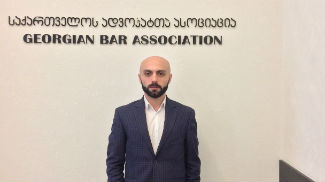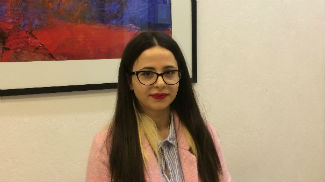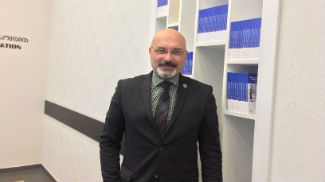A stronger Bar Association strengthens legal service in Georgia
A European Union and Council of Europe project to support the Georgian Bar Association has helped develop an important draft provision that will be introduced into the new Constitution of Georgia to ensure that lawyers have the right to have an independent, self-governing body.

 A new training cycle management and new training curricula for Georgia’s Bar Association
A new training cycle management and new training curricula for Georgia’s Bar Association

Giorgi Tshekhani, underlined that the development of the training center was a key priority for stakeholders within the project. The project consultant evaluated the capacities of the Bar Association training center and the Association’s Executive Board, as well as the relationship with the members of the Association.
“The consultant underlined the gaps and made recommendations on possible steps to develop the centre, and we used these documents in outlining our strategic planning of the Association for 2018-2021”, said Tshekhani. He noted that the experts of the Council of Europe are exceptionally supportive in the process of implementing the strategic plan.
The project also contributed immensely to the strengthening of the Ethics Commission, “the Code of Ethics were revised and the standards for disciplinary proceedings were much improved and brought in-line with European standards”, according to Tornike Bakradze, Chairman of Ethics Commission, Georgian Bar Association. 63% of lawyers in Georgia perceived the disciplinary procedures to be fairer and more effective.
 Internships to provide junior lawyers with practical experience
Internships to provide junior lawyers with practical experience
The project assisted the Bar Association with the introduction of a centralised internship scheme as a new professional introductory course, aiming to increase the entry standards for professional lawyers.
“Thus, instead of having a non-standardised general procedure of accepting the applications from everyone, we would have a standardised and monitored mandatory internship programme starting January 2019”, said Tshekhani.
The internship will start with a three-month theoretical course at the Georgian Bar Association to introduce the candidate lawyers to some basic skills, including how to conduct a client interview, negotiate consultations, and make a proper court presentation.
“After this course, the candidate lawyers will have to undertake a nine-month-long practical course as an intern in a law firm. Upon completion, candidate lawyers may apply for membership in the Bar Association”, said Tshekhani. He noted that this modification in the procedure led to the relevant necessary amendments in the legislation in May 2018 and will come in force from 1 January 2019.
An initial training programme for the candidate lawyers has been implemented already through a pilot programme.

 Mentors teaching mediation skills
Mentors teaching mediation skills

He noted that the mentor trainings proved to be very beneficial to improve the system. “They allowed us to systematize our knowledge and learn effective mechanisms in practicing advocacy”, said Bakradze. He mentioned that this experience helped him develop mediation tools for the training. “People are different—tough, calm, emotional, and hyper-emotional, and mediation is a certain way of thinking, a tactic that is necessary for a mediator. I believe that mastering mediation skills is an integral part of becoming an experienced lawyer”, he said.
The project ‘Supporting the Georgian Bar Association’ ran from February 2015 to July 2016. It was part of the European Union/Council of Europe Partnership for Good Governance in Eastern Partnership countries, this was a four-year joint programme with a budget of €36 million. It was funded 85% by the European Union and 15% by the Council of Europe, and was implemented by the Council of Europe.
